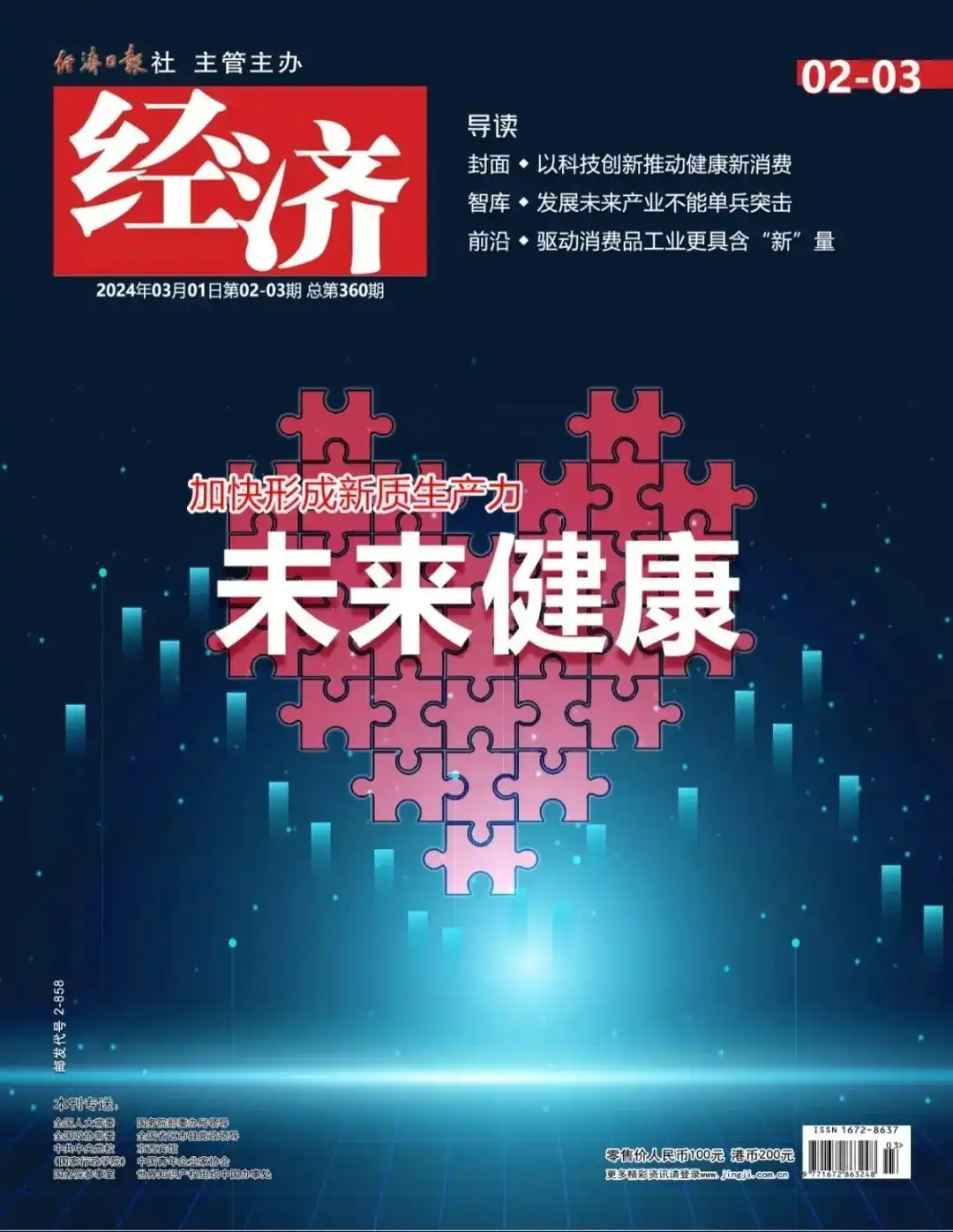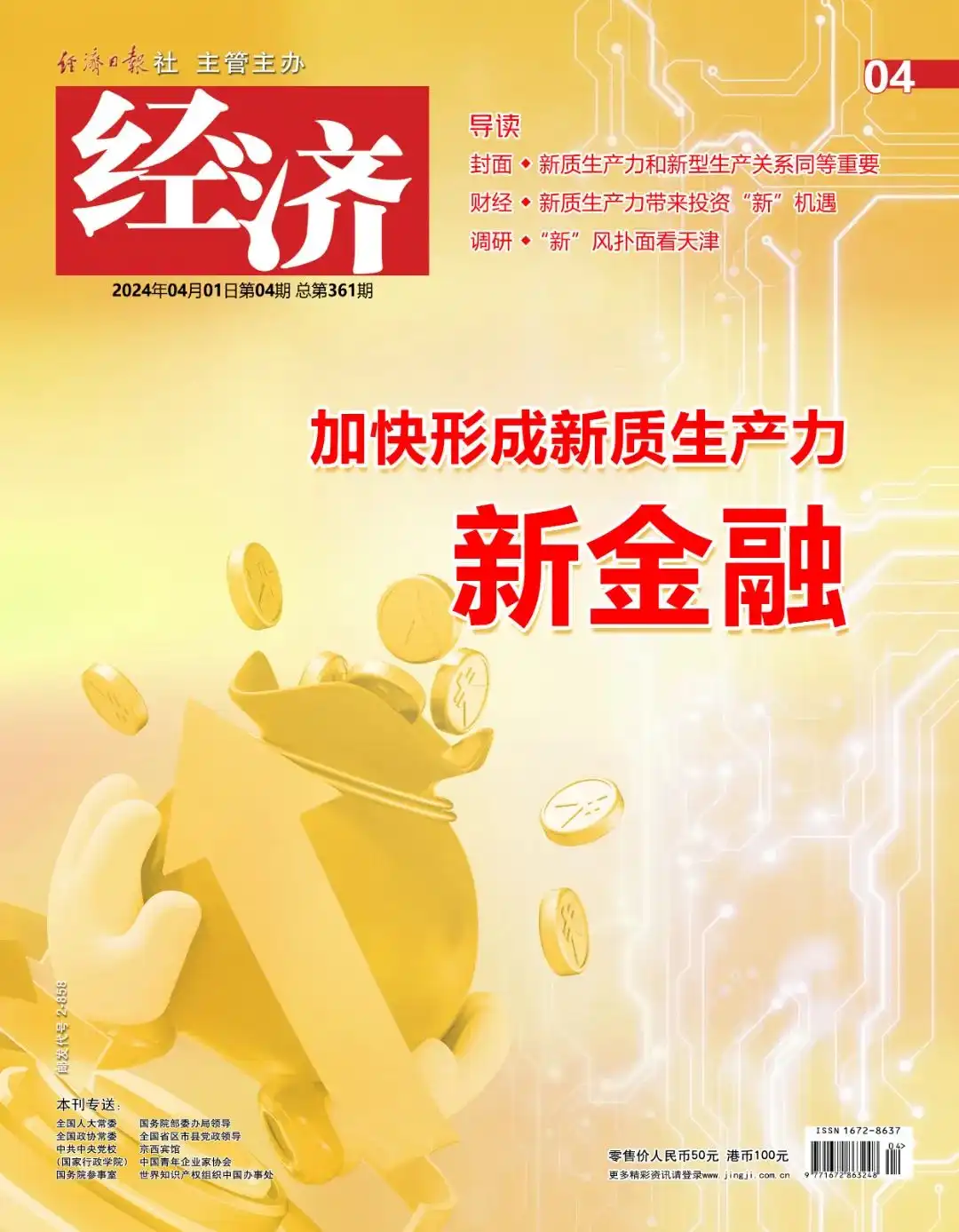New productivity and new production relations:The cornerstone of high-quality economic development
The proposal of new productive forces not only marks that economic development has entered a new stage, but also means that the Chinese economy must have new development concepts and models to adapt to this change. In this process, we have to think about how to achieve the development of new productive forces. What kind of new quality production relationship is the basis for the survival and development of new quality productivity? What kind of mechanism and institutional innovation is needed to comprehensively promote the improvement of total factor productivity through the development of new productive forces?
New productivity is the improvement and optimization of factor resources
New quality productivity, as a representative of advanced productivity, marks a new stage in the development of productivity. It should not be a simple superposition of traditional production factors, but a deep improvement and optimization of human, capital, materials, technology, data and other factor resources. This concept profoundly reflects the qualitative leap in productivity and structural upgrading in the context of a new round of scientific and technological revolution and industrial transformation.
Under the framework of new quality productivity, workers are no longer limited to manual labor in the traditional sense, but transformed into a high-quality labor force with knowledge and skills as the core. This requires us to strengthen education and training to enhance the innovative ability and adaptability of talents in order to meet the demand of new quality productivity for high-end talents. At the same time, labor materials have also experienced the transformation from traditional tools to intelligent and automatic equipment, and the integrated application of a new generation of information technology, advanced manufacturing technology, and new material technology, giving birth to new production tools that are smarter, more efficient, lower carbon and safer, which have greatly liberated and developed the social productive forces. The development of new quality productive forces is a profound change to the traditional mode of production, which requires us to comprehensively optimize and upgrade in the aspects of scientific and technological innovation, industrial structure adjustment and personnel training, in order to realize the great-leap-forward development of productive forces. This not only helps to enhance the competitiveness of the country, but also the key to promoting sustained and healthy economic and social development. By constantly optimizing the allocation and improving the use efficiency, the new quality productivity will provide a strong driving force and solid support for achieving high-quality development.
As a rapidly rising economy, China has made remarkable progress in these areas, especially in the development of digital economy, 5G communications, high-speed railway and other fields, showing strong comprehensive national strength and international competitiveness. However, although China has been in the forefront of the world in the development of new productive forces, there is still room for improvement in the allocation and use efficiency of factor resources. Specifically, although China's labor market is huge, it still needs to further increase investment and reform in the training of high-end talents and the promotion of innovation ability. Although the capital market is active, support for innovative enterprises and small and medium-sized enterprises needs to be strengthened to promote the more efficient flow of capital to the field of innovation. In the utilization of material resources, it is still necessary to promote green development, reduce waste and improve the recycling utilization of resources. In terms of technological innovation, although China has made breakthroughs in the frontier field, it still needs to make continuous efforts in the independent research and development of core technologies and the protection of intellectual property rights in order to reduce external dependence and ensure industrial security and sustainable development. In addition, as a new type of production factor, data plays an increasingly prominent role in production, but the relevant systems and mechanisms need to be further improved in the aspects of data security, privacy protection and market-oriented allocation of data elements. Only by comprehensively deepening the reform, optimizing the allocation mode of production factors and improving the allocation efficiency of production factors, can we effectively make up for these shortcomings, promote the further development of new quality productive forces, and provide solid support for the realization of high-quality development.
Connotation and characteristics of new production relations
New production relations compatible with new quality productivity are formed in the context of globalization and information era, with the rapid development of productivity and profound changes in the social and economic structure. Its connotation and characteristics are mainly reflected in three aspects: marketization, legalization and internationalization. These characteristics together constitute the core content of new production relations and provide a solid foundation for the efficient operation of the modern economic system.
Marketization is one of the important characteristics of new production relations, 它强调通过市场机制来解决生产力要素的定价和配置问题,从而提高资源配置的效率。市场化意味着生产要素如劳动力、资本、技术等能够在市场中自由流动和交易,价格由市场供求关系决定,这有助于优化资源配置,促进创新和竞争,激发市场活力。市场化还要求建立完善的市场监管体系,确保市场秩序的公平和透明,防止市场失灵和垄断行为的发生。
Rule of law is another key feature of new production relations. 它确保了人身和财产权利得到法律的严格保护,包括知识产权在内的各类权利不受侵犯。法治化环境下,司法执法的公平、公正、公开是维护市场秩序和保障经济活动顺利进行的基石。法治化还包括确保所有市场主体平等准入市场,以及公平享受和获取公共资源、信息和服务的权利。这不仅有助于构建统一开放、竞争有序的市场体系,还能够促进社会公平正义,保障经济的可持续发展。
Internationalization reflects the development trend of new production relations in global economic integration, 它要求生产关系能够适应国际规则体系,促进要素资源的国际化流动。国际化意味着生产关系需要与国际标准和规则相接轨,推动贸易和投资自由化,加强国际经济合作与交流。在国际化的背景下,国家和企业需要积极参与全球经济治理,通过国际竞争和合作,提升自身的国际竞争力和影响力。
The connotation and characteristics of new production relations reflect the new requirements and new trends of modern social and economic development. Marketization, legalization and internationalization together constitute the basic framework of new production relations. They interact and promote each other, and jointly promote high-quality economic development and comprehensive social progress.
Necessary conditions for high-quality development of new productivity
The development of new quality productive forces, as the key driving force to promote high-quality economic development, is inseparable from the support and improvement of the new relations of production. The development of new quality productivity is the core driving force of high-quality economic development, which represents the innovation of technology, the upgrading of industry and the significant improvement of production efficiency. This change of productive forces is not only a breakthrough at the technological level, but also a fundamental change to the traditional mode of production. As the basis of the social and economic structure, the relations of production must adapt to the development level of the productive forces to ensure that the potential of the productive forces can be fully released. With the continuous emergence of new quality productive forces, the traditional relations of production are often difficult to meet the development needs of new quality productive forces. For example, fixed division of labor, centralized production mode and hierarchical management structure may not be able to effectively support the rapid iteration and flexible operation of new quality productivity, and may even become a bottleneck restricting its development. At this time, the adjustment and optimization of production relations is particularly important. For example, the rise of the sharing economy has changed the traditional relationship between ownership and use rights, making the allocation of resources more efficient; the development of the digital economy requires the legal system of data property rights and privacy protection to keep pace with the times. These new relations of production not only provide a suitable social environment for the new quality productive forces, but also lay a solid foundation for high-quality economic development.
因此,在新质生产力不断推动经济向前发展的同时,生产关系的调整和优化显得尤为重要。这The first involves the strengthening of the legal protection system. 一个稳定和公正的法治环境能够为生产和消费活动提供必要的预期和权益保障,增强投资者和消费者信心,降低交易成本,减少不必要的风险。这对于增强市场主体的信心,尤其是对于初创企业和中小企业来说,是至关重要的。法治的完善还能够为企业提供一个公平竞争的环境,保护消费者权益,促进健康的市场秩序。
Secondly, the optimization of the property rights system is also indispensable. 通过确保各类生产要素的所有者能够获得应有的回报,产权制度的改革能够激发创新者和投资者的积极性,从而推动技术和知识的进步与创新。这种制度的完善不仅能够促进知识产权的保护,还能够鼓励更多的研发投入,加速新技术的商业化进程。
Thirdly, the improvement of market mechanisms is also the key to improving productivity. 一个高效的市场能够确保资源在各个领域中得到最有效的配置,这不仅提高了整体生产效率,还能够促进产品和服务的质量提升。市场机制的完善还包括消除行政壁垒,促进公平竞争,以及推动市场准入和退出的便利化,从而为企业提供更加广阔的发展空间。此外,新型生产关系的构建还需要重视市场环境的优化,确保市场在资源配置中发挥决定性作用。这意味着要减少不必要的行政干预,打破行业垄断,鼓励公平竞争,让市场真正成为资源配置的主导力量。通过市场机制的作用,可以促进知识、信息、创新等非物质要素的高效流动和利用,激发企业和个人的创造潜能。在全球化的大背景下,这样的市场环境不仅能够吸引国内外投资,还能够促进技术的交流与合作,推动经济体实现质的飞跃和可持续的增长。
Finally, the promotion of international cooperation is another important aspect of improving new quality productivity. 在全球化的今天,国与国之间的经济联系日益紧密,国际合作能够帮助国内企业更好地融入全球产业链,利用全球资源,提升自身的国际竞争力。通过参与国际分工,企业不仅能够接触到更广阔的市场,还能够学习到先进的管理经验和技术,这对于提升整个国家的产业水平和创新能力具有重要意义。
The development of new productive forces and the improvement of new production relations constitute the core driving force for China's economic development. New productivity represents an overall improvement in productivity. It relies on technological breakthroughs, factor innovation and industrial upgrading, and emphasizes the importance of innovation and knowledge economy in the era of globalization and information. This change in productivity not only promotes the optimization of the economic structure and the transformation and upgrading of industries, but also plays a key role in improving national competitiveness and achieving sustainable development. The establishment of new production relations, characterized by marketization, legalization and internationalization, provides the necessary social and institutional foundation for the development of new productive forces, ensures the effective allocation and utilization of production factors, and promotes high-quality economic development.
The future of China's economic development will rely more on the continuous progress of new productive forces and the continuous optimization of new production relations. This requires China to continue to make efforts in deepening reforms, promoting scientific and technological innovation, strengthening the construction of the rule of law, and expanding international cooperation to adapt to and lead the new normal of economic development. Through these measures, China will further unleash its economic development potential, enhance global competitiveness, and lay a solid foundation for achieving the grand goal of comprehensively building a modern socialist country. (Liu Feng is a director of the China Chief Economist Forum and chief economist of the International Institute of Green Finance of the Central University of Finance and Economics, and Nie Weixin is a research assistant in the Chief Economist Research Office of the International Institute of Green Finance of the Central University of Finance and Economics)


